2. The essential conditions for achieving Happiness
Previous - Next - Contents
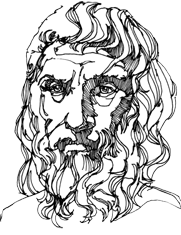 Having previously discussed ways and means to avoid or remove
unhappiness from your mind, it is of course equally important to be aware
of those conditions that positively make you happy, or at least content,
with your daily life.
Having previously discussed ways and means to avoid or remove
unhappiness from your mind, it is of course equally important to be aware
of those conditions that positively make you happy, or at least content,
with your daily life.
The ancient Greek philosopher Epicurus
(341-270 BC) had that sorted out pretty well 2,300 years ago. His three main
factors providing happiness were :
- 1. Friendship
- 2. Freedom
- 3. Thought (to overcome anxieties)
- Friendship, Epicurus considered essential for happness for :
- We don't exist unless there is someone who can see us existing,
- what we say has no meaning until someone can understand,
- while being surrounded by friends confirms our identity.
Freedom by Epicurus and his friends was achieved by quitting their jobs and living together in a modest house, with a vegetable garden where they grew their own food.
Thought was considered importent as a remedy against anxiety over ilness, poverty, death, etc.
|
More than two millennia later I find that Epicurus' choices still stack up very
well with me now. I would personally however immediately add one more factor : Good
Health.
I write the following comments for my own clarification and record, but
also for you, dear reader, to encourage you to write down and contemplate
your factors for achieving happiness.
My list, in the order of my personal priorities (and reflecting my
introvert nature) is :
1. Health 2. Freedom
3. Thought 4. Friendship
1. Health
I am sure that Epicurus was well aware of this element but simply decided to
keep it out of his philosophical considerations.
In our early years (at least as long
as we stay healthy) we tend to neglect our health, by smoking, disregarding
healthy food and exercise. As we move into our 40s however we become more
conscious of growing older and tend to take better care of our bodies.
Now in
my 70s I do some exercise (and feel very good after I have done it), take a few
pills to keep my blood pressure and cholesterol down and have my regular checkups
with my GP, dentist and periodontist. I am somewhat surprised that aspects of my
deteriorating body (like increasing deafness, aches and pains in some of my limbs,
reduced movement abilities) which would have worried me at a younger age, now
don't appear to bother me at all. I am therefore at present quite happy with the
state of my health.
2. Freedom
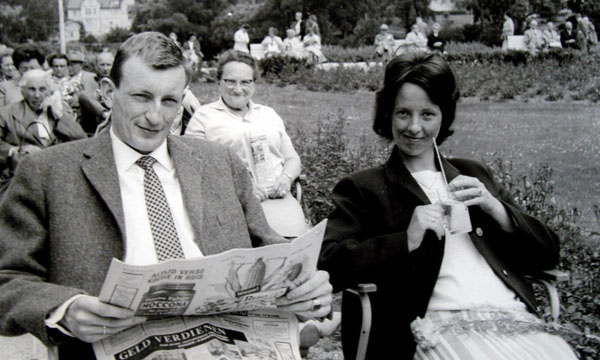 Freedom, as I have reported extensively in my Blog (Freedom 1 |
2 |
3 |
4 |
5 |
6 |
7 |
8),
is, after good health, probably the most important factor contributing to my
happiness (or lack thereof).
Freedom, as I have reported extensively in my Blog (Freedom 1 |
2 |
3 |
4 |
5 |
6 |
7 |
8),
is, after good health, probably the most important factor contributing to my
happiness (or lack thereof).
During my working years I found it hard to work for
anyone other than exclusively myself and I have been happiest when doing so
(after leaving my geological profession) as a simple and rather poorly paid
private music teacher.
Now, while retired, my intense desire for freedom is
keeping me from going into any fixed long term relationship with a woman. Since
my separation from my former wife Antien, almost 30 years ago, I have not been
able (or willing) to sustain another long term relationship. But I do feel it as
a price I have to pay for my freedom.
3. Thought
Whereas an extrovert person would most likely have "Friends" at this level
in his (or her) list, for me, being an outright introvert it is my mind which is my
greatest companion.
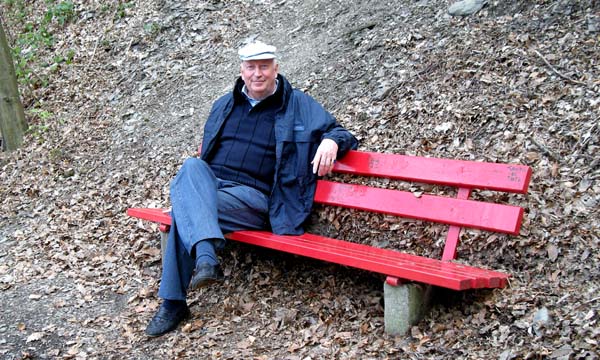 Whereas Epicurus considered "thought" (for contributing to happiness) merely as its use in overcoming
major anxieties (like "death, illness, poverty, superstition"), I consider
thought as the main creative activity throughout my entire life.
Whereas Epicurus considered "thought" (for contributing to happiness) merely as its use in overcoming
major anxieties (like "death, illness, poverty, superstition"), I consider
thought as the main creative activity throughout my entire life.
The
fact that, while working as a geologist, many of my creative ideas and findings were either
ignored or not acted upon, caused the major unhappiness and depressions in my life.
Since leaving that profession I have been anxious and intensely determined
never to fall into that abyss again.
These days, as long as my mind can roam through areas of interest, I am a
happy man. Initially this was in the field of music, but now, through much
reading, my mind can latch onto anything that catches his interest. To clarify
and focus on these subjects I write them in my Blog. A wonderful pastime and
hobby which gives me great pleassure.
As weapon against "anxiety"
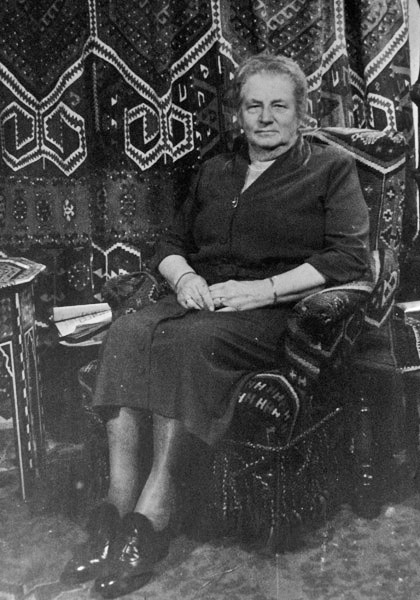 Epicurus has a point though!
Epicurus has a point though!
Whenever we were worried or had fears about something as small children our Grandmother (in Holland) used to say a small rhyme to us :
- Een mens lijdt het meest
onder de dingen die hij vreest
maar die nooit op
komen dagen . . .
Translated into English it would approximately be :
- A person suffers most
from the things he fears
but which never eventuate . .
.
In other words (and as we all know too well) our own mind can be one of our greatest
enemies. But, by acknowledging the wisdom of above rhyme, our mind can also be our best
protector (against itself) by negating our fear or anxiety through moderation and
reason.
I guess it needs practice, but my Grandmother's rhyme always comes to my
rescue in anxious situation.
And this is exactly what Epicurus had in mind when he added Thought
("to overcome anxieties") to his list of factors which can help us achieve happiness.
4. Friends
 A friend is someone who accepts you as you are, with whom you can comfortably be
who you are, and which company you can enjoy even when neither of you is uttering a
word.
A friend is someone who accepts you as you are, with whom you can comfortably be
who you are, and which company you can enjoy even when neither of you is uttering a
word.
This clearly is the happiness factor I am least successful with. For one
simple reason : my best friends (those you make during your school and university
days) all live at the other side of the Globe in The Netherlands.
But I am
working on it. Last year I went over there and met with many of my friends, most of whom I had not seen in
30 years.
It was absolutely wonderful, but after my return to Australia I immediately felt pulled apart emotionally by two opposing happiness
factors : my friends back in Holland and my preferred living
environment here in Australia.
In due course I have settled down on the issue and am now happily reconciled with
the solution of remaining in Australia, but visiting my friends in Holland every
1-2 years or so.
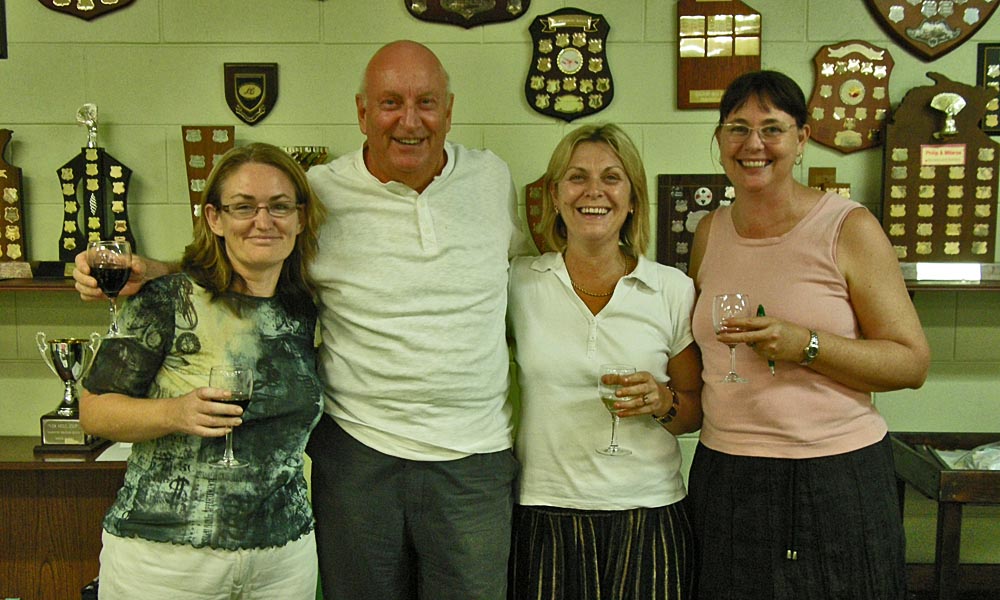 But companionship of friends from the present and recent past are also an important happiness factor, like my friends and bridge partners, especially in Darwin, with whom I enjoy great times and excellent company.
But companionship of friends from the present and recent past are also an important happiness factor, like my friends and bridge partners, especially in Darwin, with whom I enjoy great times and excellent company.
In addition through my habit of frequenting the same places for lunch over periods of time (Casuarina Bar Zushi, Palmerston Library Bistro, Mooloolaba Surf Club, etc.), I also nurture friendly acquaintances with staff, with whom I always exchange a few friendly words or a chat each day. This too contributes to my overall sense of happiness.
Next Page -
Top of Page
Copyright © 2010 Michael Furstner
|





